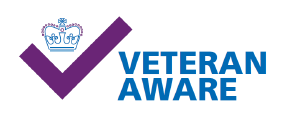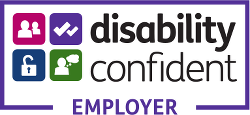Job summary
- Main area
- Secure Division -Specialist Support Team - Learning Disabilities and or Autism
- Grade
- Band 8a
- Contract
- Permanent: Post Holder will be required to participate in On Call rota covering 7 days
- Hours
- Full time
- Flexible working
- Compressed hours
- Job ref
- 350-SC7461953-A
- Employer
- Mersey Care NHS Foundation Trust
- Employer type
- NHS
- Site
- Hollins Park House
- Town
- Warrington
- Salary
- £55,690 - £62,682 per annum
- Salary period
- Yearly
- Closing
- 12/11/2025 23:59
Employer heading

Advanced Clinical Practitioner – in Autism
Band 8a
----------------------------------------------------------------------------------------------------------------------------------------------------------------------------------------------
Mersey Care NHS Foundation Trust celebrates diversity and promotes equal opportunities; we are committed to challenging and eliminating racism and other forms of discrimination and advancing and promoting equality of opportunity in the provision of services and creating an inclusive environment for all employees. We believe that everyone has the right to be treated with dignity and respect.
We take positive action to support disadvantaged groups and also particularly encourage applications from ethnically diverse, disabled and LGBTQIA+ people that are under-represented in our workforce. Furthermore we welcome applications from reservists and ex-armed forces personnel as we recognise the benefits of the values, skills, training and experience that they bring to their work with us. We encourage all applicants to share their equality information with us.
----------------------------------------------------------------------------------------------------------------------------------------------------------------------------------------------
Job overview
Are you ready to make a meaningful impact in a pioneering service that places people at the heart of everything we do?
We are seeking a dynamic, compassionate, and forward-thinking Advanced Clinical Practitioner (ACP) - Autism to join our expanding Cheshire and Mersey Specialist Community Forensic Team for people Learning Disabilities and or Autism SCFT LD/A team. This is a unique opportunity to be part of a service that is transforming care across the region for individuals with learning disabilities and/or autism who have a forensic need.
Previous applicants can re-apply.
Main duties of the job
The Specialist Community Forensic Team is a multi-disciplinary team consisting of Nursing, Speech and Language Therapists, Occupational therapists, Social Work, Support Worker Psychology and Psychiatry. You will be expected to work in all areas of Cheshire and Merseyside and to liaise with a number of partner agencies including Health, Social Care and the Criminal Justice agencies to develop proactive and preventative risk mitigation and support.
The post holder is required to deliver an advanced level of clinical practice within their recognised remit. Working within the local and nationally agreed frameworks the Advanced Clinical Practitioner (ACP), will exercise independent judgment to assess, investigate, diagnose, plan, implement and evaluate the clinical care and management of patients within their care. The Advanced Clinical Practitioner will work with the multi-disciplinary team providing leadership, sharing knowledge, and
engaging in research and promoting evidence-based practice.
The ACP’s reporting lines will be via the specified divisional leadership structure. They will work alongside and support the education and development of trainee APs and the wider MDT within the
specified Division/service line. The ACP will have key working relationships with all members of the team, trust management teams and wider partners.
Working for our organisation
Mersey Care is one of the largest trusts providing physical health and mental health services in the North West, serving more than 1.4 million people across our region and are also commissioned for services that cover the North West, North Wales and the Midlands.
We offer specialist inpatient and community services that support physical and mental health and specialist inpatient mental health, learning disability, addiction and brain injury services. Mersey Care is one of only three trusts in the UK that offer high secure mental health facilities.
At the heart of all we do is our commitment to ‘perfect care’ – care that is safe, effective, positively experienced, timely, equitable and efficient. We support our staff to do the best job they can and work alongside service users, their families, and carers to design and develop future services together. We’re currently delivering a programme of organisational and service transformation to significantly improve the quality of the services we provide and safely reduce cost as we do so.
Flexible working requests will be considered for all roles.
Detailed job description and main responsibilities
Clinical Practice
1. Working autonomously deliver, manage, and evaluate clinical care for patients/service users within the service.
2. Take responsibility for the delivery of an evidence based clinical model ensuring that specialist assessment and intervention is in line with current guidance and practice.
3. Provide specialist advanced practice level contribution to risk assessment, risk management and the development of multi-disciplinary treatment plans.
4. Provide specialist advice and expertise in assessing, management and intervention for people who are autistic. This may involve engagement with complex and emotive situations and sensitive
information.
5. Working in partnership with individuals, families and others to utilise and evidence advanced knowledge and skills to appropriately assess, examine, investigate, diagnose, and manage patients
through a complete episode of care.
6. Demonstrate effective communication skills supporting people in making decisions that promote person centred care.
7. Utilise knowledge and expertise in making clinical reasoned decisions for patients with differentiated and undifferentiated presentations and complexity.
8. Synthesise information from multiple sources to make appropriate evidence-based judgements in line with professional boundaries.
9. Exercise professional judgement to manage risk, including in situations where there is complexity and unpredictability.
10. Improve the quality of the patient experience by identifying and meeting the individual clinical needs of patients including safeguarding, and issues pertaining to child protection & vulnerable adults.
11. Deliver care that is underpinned by evidence-based knowledge, skills and demonstrated competence.
12. Act as a clinical role model in the delivery of clinical care that meets the needs of people who access the service.
13. Be professionally and legally accountable for all work undertaken to practice at an advanced level of professional autonomy and accountability that is within Trustpolicies and the Nursing and Midwifery
Code of Conduct (2008) or the Health & Care Professions Council (HCPC).
Leadership and Management
14. Provide compassionate clinical leadership and support high quality and safe practice.
15. Identify and intervene proactively where circumstances contribute to an unsafe environment for patients, staff or relatives and escalate these to the health and safety team/safeguarding team.
16. Actively participate in development activities including appraisal, and clinical supervision of own practice and others.
17. Manage and assess risk within the areas of responsibility, ensuring adequate measures are in place to protect staff and patients.
18. Working collaboratively lead and actively contribute to the development and improvement of systems and processes that facilitate patient experiences and outcomes.
19. Improve the quality of the patient experience by identifying and meeting the individual clinical needs of patients including issues pertaining to child protection & vulnerable adults.
20. Ability to adapt specialist clinical knowledge and skills to different clinical settings and influence service delivery and patient care.
21. To provide advice on patient care to the wider MDT considering all aspects of clinical Governance and act as a specialist resource within the working area.
22. Develop robust governance systems by contributing to the implementation of evidence base protocols, documentation, synthesising and presenting information from a variety of sources
in line with Divisional and Service governance requirements.
23. Lead and actively contribute to the review and development of clinical patient pathways and the development of the service, ensuring our services are safe and reduction of unwarranted variation, promoting and sharing the adoption of best practice.
24. Continually develop practice to respond to future need and identify future development needs, prioritising workload, and clinical interventions as appropriate
25. Work to an individual scope of practice within the ethical, legal, professional and Trust policy, governance, and process.
26. Engage stakeholders and use high level negotiating and influencing skills to develop and improve practice within and across clinical practice.
27. Contribute to the development of practices and roles that are appropriate to the individual and service need taking into account the implications of epidemiological, demographic, social, political and professional trends and developments.
28. Identify the need for change and proactively generate practice innovations and lead the development of new practice to better meet the needs of patients and the service.
29. Promote collaborative working and positive, effective communication within the team and when working in partnership with external agencies.
Education
30. Identify own learning needs and development plan.
31. Adhere to CPD requirements of the Trust in relation to maintaining evidence of on-going competence.
32. Share knowledge and expertise, acting as an expert resource to others across the organisation as appropriate.
33. Actively engage in peer review to develop own and others practice.
34. Contribute to a culture of lifelong learning for all staff.
35. Support the development of others learning, including team members and Trainee ACPs in the development of care.
36. Act as a role model, educator, and supervisors to others providing guidance and coaching to the team.
37. Promoting a culture of reflective practice, by role modelling and supporting an open culture of enquiry.
38. Promoting ACP role within the trust, regionally and nationally.
Research
39. Critically engage in research activity, adhering to good practice research practice guidance, to promote evidence-based practice.
40. Evaluate own and service evaluation, demonstrating the impact of the Advanced Clinical Practice on service effectiveness and quality of care.
41. Evaluate service effectiveness by critically engaging in service evaluation using clinician rated outcome measures, patient rated outcome measures and carer / staff experience feedback.
42. Lead on clinical audits, auditing own and others practice, acting upon findings.
43. Critically appraise and synthesise the outcome of relevant research, evaluation, and audit
44. Lead on the review and implementation of appropriate NICE guidance.
45. Identify gaps in evidence and application of research into practice, working with others to identify how the gaps are addressed.
46. Disseminate best practice.
47. Facilitate collaborative links between clinical practice and research through pro-active networking with academic and clinical staff.
Person specification
Qualifications
Essential criteria
- Registration with relevant clinical body (NMC/HCPC)
- MSc Advanced Clinical Practice or equivalent such as accreditation NHSE
Desirable criteria
- Independent and supplementary prescribing qualification
- Post graduate qualification in Autism
- Specialist ASC diagnostic training
Knowledge/Experience
Essential criteria
- Experience of working effectively at a senior level in a community multi- disciplinary led environment
- Proven compassionate leadership skills
- Engagement with research and audit process
- Engaging in Service Change to improve patient outcomes and experiences
- Experience of supervising and supporting teams
- Advanced knowledge in the needs of autistic people and clinical approaches to assessment and intervention
- Advanced knowledge of relevant legislation and legal frameworks applicable to the service user population
- Advanced skills in formulation and risk assessment
- Experience of working with people experiencing mental health problems
Desirable criteria
- Formal training in forensic risk assessment
- Post graduate training in Research and methodology
- Post graduate training in leadership
Values
Essential criteria
- Continuous Improvement
- Accountability
- Respectfulness
- Enthusiasm
- Support
- High professional standards
- Responsive to service users
- Engaging leadership style
- Strong customer service belief
- Transparency and honesty
- Discreet
- Change oriented
Skills
Essential criteria
- Excellent communication skills both written and verbal
- Change management
- Able to work across boundaries
- Negotiation and conflict management skills
- IT literate
Applicant requirements
You must have appropriate UK professional registration.
This post is subject to the Rehabilitation of Offenders Act 1974 (Exceptions) Order 1975 (Amendment) (England and Wales) Order 2020 and it will be necessary for a submission for Disclosure to be made to the Disclosure and Barring Service.
Documents to download
Further details / informal visits contact
- Name
- Chris Colwell
- Job title
- Operational Team Manager
- Email address
- [email protected]
- Telephone number
- 07386 652 889
- Additional information
Julia Anderson
Clinical Service Manager-Specialist Support Team
Tel No: 07795 828722
Email : [email protected]
List jobs with Mersey Care NHS Foundation Trust in Nursing and Midwifery











